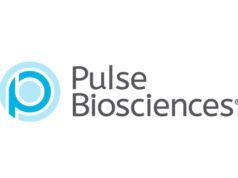
On 28 December 2012, the FDA approved the anticlotting drug apixaban (Eliquis, Bristol-Myers Squibb), an oral tablet used to reduce the risk of stroke and systemic embolism in patients with non-valvular atrial fibrillation.
“Blood clots in the heart can cause a disabling stroke if the clots travel to the brain,” said Norman Stockbridge, director of the Division of Cardiovascular and Renal Products in the FDA’s Center for Drug Evaluation and Research. “Anticlotting drugs lower the risk of having a stroke by helping to prevent blood clots from forming.”
The safety and efficacy of apixaban in treating patients with atrial fibrillation not caused by cardiac valve disease were studied in a clinical trial of more than 18,000 patients that compared apixaban with the anticlotting drug warfarin. In the trial, patients taking apixaban had fewer strokes than those who took warfarin.
Patients with prosthetic heart valves should not take apixaban nor should patients with atrial fibrillation that is caused by a heart valve problem. These patients were not studied in clinical trial. As with other FDA-approved anticlotting drugs, bleeding, including life-threatening and fatal bleeding, is the most serious risk with apixaban. There is no agent that can reverse the anticoagulant effect of apixaban.
Apixaban will be dispensed with a patient Medication Guide that provides instructions on its use and drug safety information. Health care professionals should counsel patients on signs and symptoms of possible bleeding.
Eliquis is manufactured Bristol-Myers Squibb and marketed by Bristol-Myers Squibb and Pfizer.









